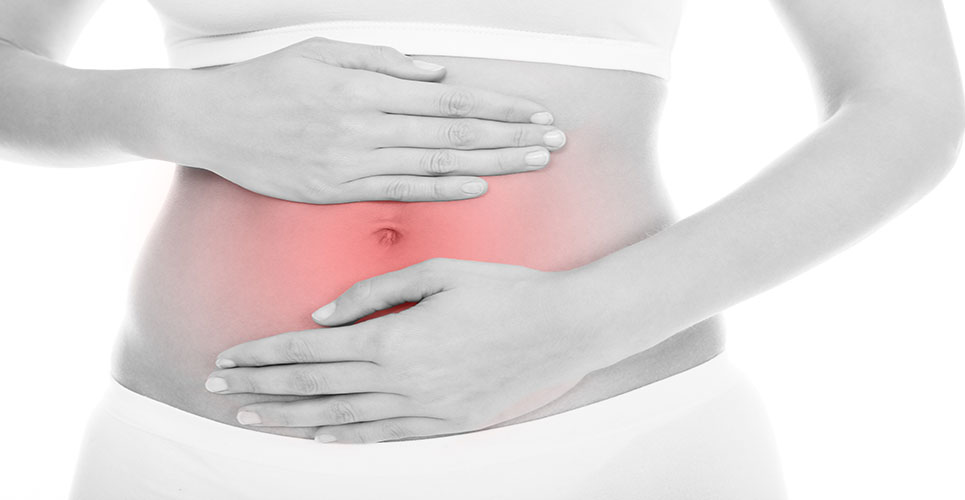Janssen has presented new late-breaking data from UNITI-1 assessing Crohn’s disease symptom improvement in patients during the first 2 weeks after an intravenous (IV) infusion dose of Stelara®(ustekinumab).1
The data presented at the 25th United European Gastroenterology Week (UEGW 2017) showed that patient-reported symptom improvement began as early as day 1 post ustekinumab IV infusion and was observed consistently at day 8 and beyond when compared with placebo.1
Janssen has presented new late-breaking data from UNITI-1 assessing Crohn’s disease symptom improvement in patients during the first 2 weeks after an intravenous (IV) infusion dose of Stelara®(ustekinumab).1
The data presented at the 25th United European Gastroenterology Week (UEGW 2017) showed that patient-reported symptom improvement began as early as day 1 post ustekinumab IV infusion and was observed consistently at day 8 and beyond when compared with placebo.1
“The symptoms of Crohn’s disease can cause significant distress to many patients, which is why it’s important to find a treatment that can act rapidly to reduce the impact of the disease. These new results from the UNITI-1 trial are encouraging because they demonstrate that treatment with ustekinumab may begin to reduce patient reported symptoms of Crohn’s disease within just 1-2 weeks for a number of patients,” said Professor William Sandborn, University of California San Diego, USA.
This analysis from the UNITI-1 trial involved patients with moderately to severely active Crohn’s disease who were intolerant or refractory to anti-TNF treatment. Patients received an IV infusion dose of ustekinumab (130mg or ~6mg/kg) or placebo at Week 0 (baseline). Symptom improvement was assessed using patient-reported outcomes from the Crohn’s Disease Activity Index (CDAI), three components were measured: daily frequency of loose stools (SF), abdominal pain (AP) and general wellbeing (GWB). Patients collected CDAI data in diaries from week 0, allowing investigators to identify when patients first experienced symptom improvement.1
The analysis demonstrated that 19.6% of patients receiving ~6mg/kg and 17.6% of patients receiving 130mg ustekinumab via IV infusion reported improvements in symptoms (at least 50 point improvement in SF and AP scores) within 7 days. After 14 days 29.3% and 31.4% reported significant symptom improvements from the ~6mg/kg (p<0.05) and 130mg (p<0.01) ustekinumab treatment arms respectively.1
Janssen also presented new data from an analysis of the UNITI programme evaluating the efficacy of ustekinumab at week 16 in patients who either had or had not responded to ustekinumab at week 8.2 The data showed that of the 219 patients who did not respond after ustekinumab IV induction (~6 mg/kg) in UNITI-1 and UNITI-2, 37.6% and 60.5% respectively had responded at week 16, 8 weeks after their first subcutaneous (SC) ustekinumab 90mg maintenance dose.2
For patients receiving an IV induction dose of 6mg/kg in UNITI-1 response and remission rates were 37.8% and 20.9% respectively at week 8 and had increased to 47.4% and 24.1% at week 16 (8 weeks after the first SC ustekinumab 90mg maintenance dose). For patients receiving an IV induction dose of 6mg/kg in patients in UNITI-2 response and remission rates were 57.9% and 40.7% respectively at week 8 and had increased to 73.7% and 55.5% at week 16.2
The most common adverse reactions in controlled periods of the adult psoriasis, psoriatic arthritis and Crohn’s disease clinical studies with ustekinumab were nasopharyngitis and headache. Most were considered to be mild and did not necessitate discontinuation of study treatment. The most serious adverse reaction that has been reported for ustekinumab is serious hypersensitivity reactions including anaphylaxis. The overall safety profile for ustekinumab was similar to approved indications that include moderate to severe plaque psoriasis, active psoriatic arthritis and moderately to severely active Crohn’s disease.3
References
- Talk: LB07; Ustekinumab IV induction Results in Crohn’s Disease Symptom Improvement within the First Week in Anti-TNF Refractory Patients. Session: Clinical and observational trials in inflammatory bowel diseases. Session type: late breaking abstracts. Date: Monday, October 30, 2017. Time: 14:00-15:30. Session room: room A3. Presenting Author William J. Sanborn. United European Gastroenterology Week (UEGW 2017); 28 October-1 November, 2017; Barcelona, Spain.
- Colombel JF, Sloan S, Gasink C et al. Response and Remission after 16 Weeks of Ustekinumab – An All Patients Analysis from the UNITI Crohn’s Studies. United European Gastroenterology Week (UEGW 2017); 28 October-1 November, 2017; Barcelona, Spain: UEGW 2017 ID# 2728.
- Summary of Product Characteristics Stelara 45 mg solution. Janssen-Cilag International NV http://www.ema.europa.eu/docs/en_GB/document_library/EPAR_-_Product_Information/human/000958/WC500058513.pdf (last accessed October 2017).
